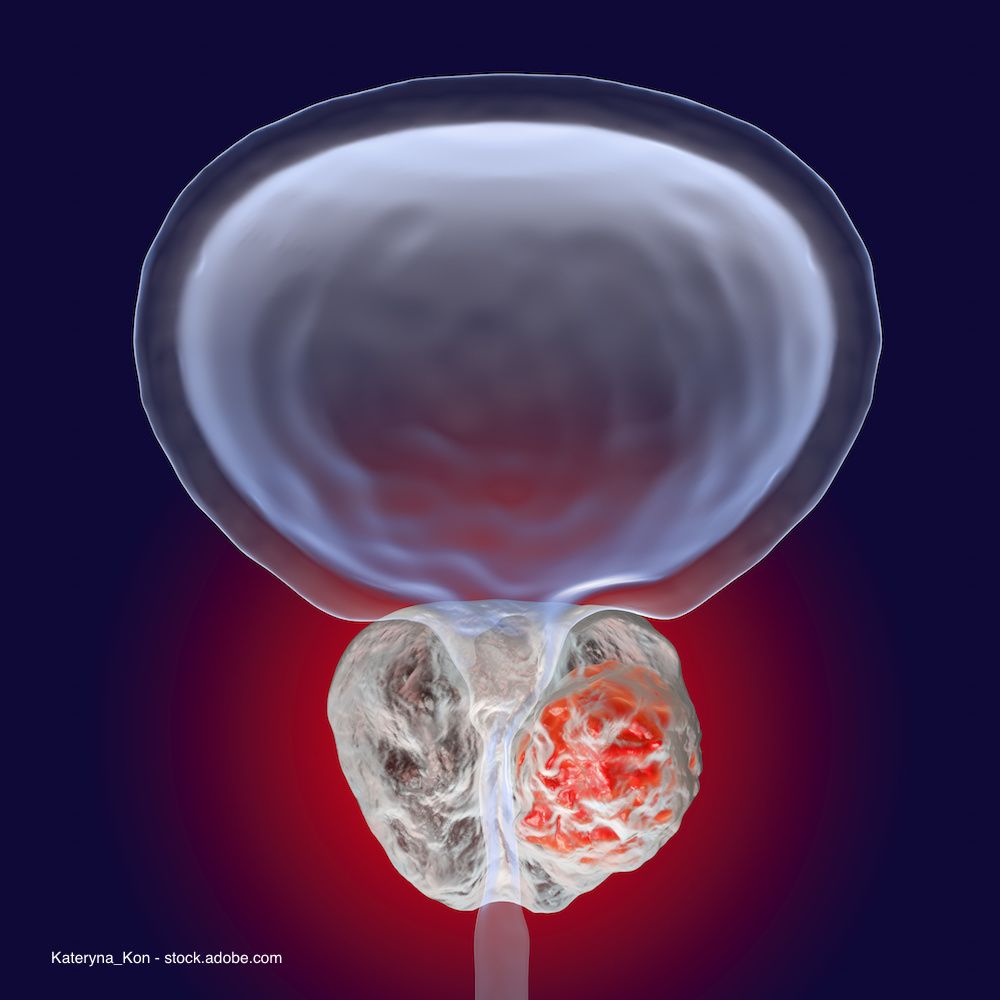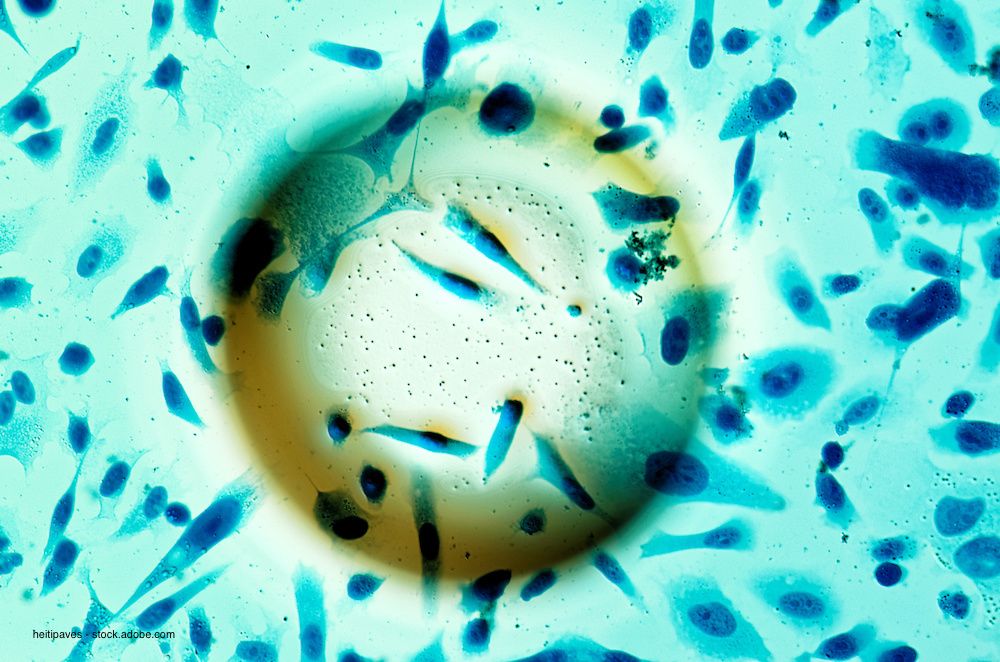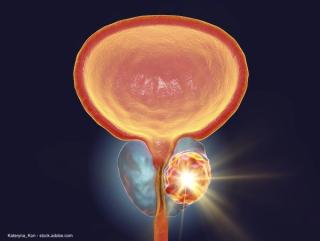
Prostate Cancer
Latest News

Latest Videos

CME Content
More News

Men with low levels of free testosterone 3 months after undergoing radical prostatectomy could face increased chance of early recurrence of prostate cancer, according to researchers from the University of California Irvine.

More research is needed to determine the value of using magnetic resonance imaging to predict pathology outcomes following radical prostatectomy, according to a study presented at the AUA annual meeting in Chicago.

Radiation is a well-tolerated and effective salvage option following primary high-intensity focal ultrasound for the treatment of localized prostate cancer, according to findings from a single-institution retrospective analysis.

Following a program that combines a low carbohydrate diet and modest walking may be an effective strategy for blocking many of the adverse metabolic effects of androgen deprivation therapy, according to findings of a randomized controlled trial.

"In this study, even if only the higher risk subgroup (unfavorable PSMs and advanced stage/grade) were to receive adjuvant treatment, nearly 75% of patients may potentially be overtreated," writes Badar M. Mian, MD.

"Therapeutic layering... is now becoming commonplace in the initial treatment of newly diagnosed metastatic prostate cancer," writes Leonard G. Gomella, MD.

"Despite improvements in the diagnostic markers and imaging, overdiagnosis and particularly overtreatment continue to pose a challenge for the urologic community," writes Badar M. Mian, MD.

"There’s mounting evidence that the risk for dementia increases with prolonged use. While impacting only a minority of patients, I think the risk is real," says one urologist.

Researchers evaluated a retrospective cohort of 10 patients with 26 primary prostate tumors who underwent MRI prior to prostatectomy.

African-American men with metastatic castration-resistant prostate cancer who were treated with abiraterone acetate (ZYTIGA) or enzalutamide (XTANDI) and who had not received prior chemotherapy lived 20% longer over 5 years compared with their Caucasian counterparts.

Nearly 90% of men with hormone-sensitive prostate cancer (HSPC) who initiate androgen deprivation therapy (ADT) have at least one bone metabolism biomarker that is elevated.

Inflammatory bowel disease increases the risk of any and clinically significant prostate cancer, according to an examination of data from a large, single medical network.

"Patients with favorable-risk disease who have a DNA repair mutation should be counseled that there is a significantly increased risk of reclassification with AS," writes Stacy Loeb, MD, MSc.

Men with prostate cancer who are carriers of germline pathogenic mutations in the DNA repair genes BRCA1/2 and ATM are at increased risk for grade reclassification during active surveillance, according to research reported by H. Ballentine Carter, MD, at the 2018 AUA annual meeting in San Francisco.

Among the treatment options for intermediate-risk prostate cancer, brachytherapy is associated with the lowest 10-year rate of severe urinary complications while radical prostatectomy most often resulted in the use of devices to treat erectile dysfunction, according to findings from a retrospective analysis of patients who underwent treatment between 2004 and 2007.

Active surveillance rates among African-American men with low-risk prostate cancer tripled over a 5-year period in the United States beginning in 2010, which suggests that AS is viewed as a safe management option regardless of race.

"Just like I’ve learned that the grass really isn’t any greener on the other side, I am learning that life in the trenches of urology, as a small-town urologist, isn't exactly what I thought it would be when I was a resident," writes Dr. Rosevear.

Enzalutamide (XTANDI) added to androgen deprivation therapy significantly extended radiographic progression-free survival compared with ADT alone in a phase III study of men with metastatic hormone-sensitive prostate cancer.

A higher OncotypeDX Genomic Prostate Score is associated with an increased risk of adverse pathology in patients who undergo delayed radical prostatectomy after a period of active surveillance.

Active surveillance is only moderately able to reduce the harmful effects of prostate cancer overdiagnosis from PSA testing, according to an analysis of the long-term outcomes of men enrolled in the Prostate Cancer Research International Active Surveillance program.

According to the updated report from the Prostate Cancer Intervention versus Observation Trial (PIVOT), radical prostatectomy had no significant benefit over observation for reducing mortality among men with clinically localized disease.

Test your knowledge of the ASTRO/ASCO/AUA guideline for use of hypofractionated radiation therapy in localized prostate cancer.

"This study highlights the need for each practice to perform a self-audit of its AS protocol and take all necessary measures to ensure that patients are not lost during the monitoring period," writes Badar M. Mian, MD.

Also learn about a new stone device, an at-home testosterone enanthate injection, and more.

Christopher P. Filson, MD, MS, Adam Kibel, MD, and Stacy Loeb, MD, MS, highlight the year’s most important advances in the disease state.












